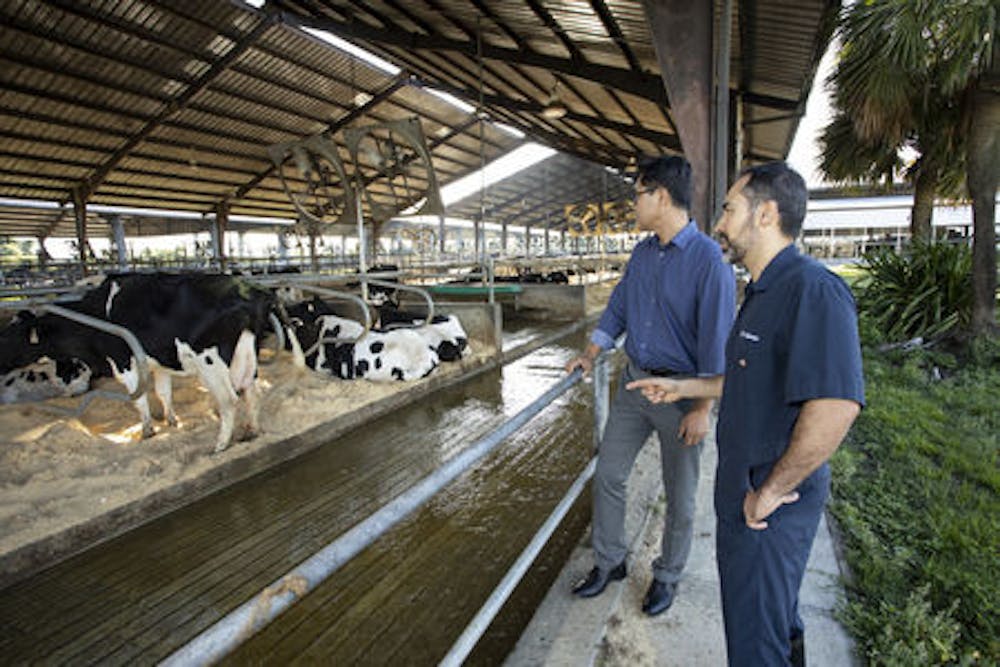UF researchers can treat harmful cow bacteria, and humans could be the next to benefit.
Researchers at UF’s Emerging Pathogens Institute studied how bacteria resistance presents itself in cows and how to prevent bacteria from transferring to humans and other animal species. Antibiotic resistance is a major threat to public health, according to the Centers for Disease Control and Prevention, so the UF researchers worked with methods other than antibiotics to target bacteria.
Funded by a grant worth about $470,000 from the U.S. Department of Agriculture, the research was divided into two main projects, with many of the findings published this month. Recently, they started working on enhancing the new treatment.
With the success of this research, beef and dairy consumers are less likely to eat harmful bacteria, and various organisms avoid disease contaminated through cow excretion spreading to water and wildlife, said Peixin Fan, a 27-year-old UF animal science doctoral student who was part of the research team.
“If we can reduce them at the pre-harvest period, the concentration or the prevalence of the antimicrobial resistance that goes to humans could be reduced,” Fan said.
A human equivalent to the treatment used on cows is not available, but the same experimental approaches could be taken to reach a solution for humans in the future, she said.
In the first project, the research team traveled to farms to study how differences in cow age and sex affected the amount of pathogens and antibiotic-resistant bacteria inside of them, said Zhengxin Ma, a UF postdoctoral associate for the Emerging Pathogens Institute.
“By monitoring all of these, we can find a possible control point that can be used as a mitigation strategy to try to control this antibiotic resistance before they enter the markets,” Ma said.
In the second project, the team focused on creating an alternative antimicrobial that could destroy bacteria without resistance, Ma said. Many antibiotics target the period of cell development but allow time for the bacteria to mutate, which results in antibiotic resistance.
People who eat meat from an infected cow that was resistant to antibiotics can be infected by a type of E. coli that can cause kidney failure and death, Ma said.
Instead of antibiotics, which are usually used for bacteria treatment, the UF researchers used substances that kill germs by disrupting and breaking down the cell membranes of harmful bacteria in cows, Ma said. Bacterial treatment with these substances is more abundant and has proven to be cheaper than most other antimicrobials.
“The antibiotic resistance crisis is going to be going on forever. It is going to be a never ending story,” Ma said.
KC Jeong, a UF/IFAS associate professor of animal sciences, and Dr. Klibs Galvao, an associate professor in the UF College of Veterinary Medicine, work to make cow bacteria less resistant to antibiotics. They are funded by a National Institute of Food and Agriculture grant.






